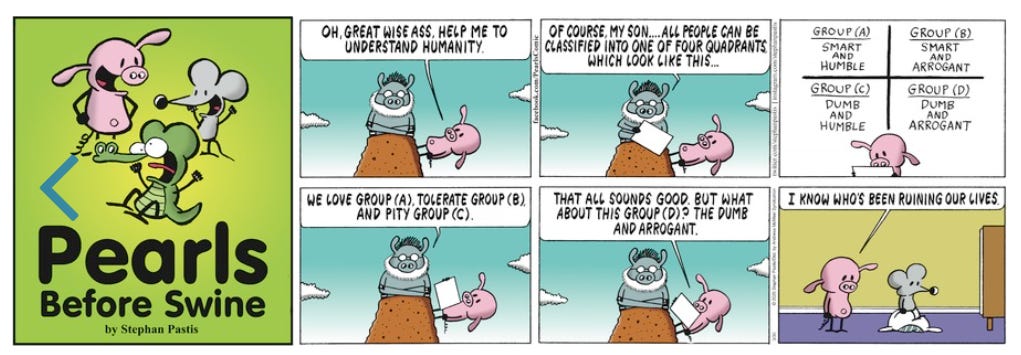"Climate is what we expect, weather is what we get."
~ Mark Twain
I’ve been hearing a lot about NOAA lately, since their office in Asheville is targeted to be closed. The assault on NOAA appears to be a feature from Project 2025, which labels it “one of the main drivers of the climate alarm industry.” Like so many other things that DOGE is attacking, I knew very little about NOAA, so I did some googling.
According to Wikipedia:
The National Oceanic and Atmospheric Administration (NOAA /ˈnoʊ.ə/ NOH-ə) is an American scientific and regulatory agency charged with forecasting weather, monitoring oceanic and atmospheric conditions, charting the seas, conducting deep-sea exploration, and managing fishing and protection of marine mammals and endangered species in the US exclusive economic zone.
Here's a more detailed explanation of some of their activities:
Weather and Climate Monitoring:
NOAA provides daily weather forecasts, severe storm warnings, and climate monitoring, using cutting-edge research and technology.
Ocean and Coastal Management:
NOAA works to understand and protect America's coasts, Great Lakes, and ocean waters, ensuring healthy and resilient economies, communities, and ecosystems.
Supporting Marine Commerce:
NOAA supports international shipping and other marine activities by providing reliable information and services.
Research and Development:
NOAA conducts research to better understand and predict changes in climate, weather, ocean, and coasts, and develops new technologies to improve its services.
Data and Information Sharing:
NOAA shares its knowledge and information with others, including citizens, planners, emergency managers, and other decision-makers, to help them make informed decisions.
Why NOAA is Important:
Public Safety:
NOAA's weather forecasts and severe storm warnings are crucial for protecting lives and property.
Economic Stability:
NOAA's work supports industries that rely on the ocean and atmosphere, such as fishing, tourism, and shipping.
Environmental Protection:
NOAA plays a vital role in protecting and restoring coastal and marine ecosystems.
Scientific Advancements:
NOAA's research contributes to a better understanding of the Earth's climate and environment.
International Cooperation:
NOAA works with other countries to address global climate change and other environmental issues.
National Security:
NOAA provides weather and ocean information that is important for national defense and homeland security.
Informed Decision-Making:
NOAA's data and information are used by government agencies, businesses, and individuals to make better decisions about climate, weather, and coastal resources.
Debby Genz recently wrote a Guest Opinion in the Citizen Times that I think helps explain the role NOAA pretty well.
Opinion: Losing NOAA would be a tragedy for Asheville and our country
Many years ago, when I was starting out as a climate activist, some of us got a tour of NOAA (National Oceanic and Atmospheric Administration) in the Federal Building in Asheville. We learned what an amazing agency it is, and what a treasure we have in our own community. Now it is being gutted by Elon Musk’s DOGE team, and there is even talk of selling the Federal Building in which it is housed. This is a tragedy and I’ll tell you why.
NOAA is home of the National Centers for Environmental Information and the world’s largest archive of weather, geophysical, oceanographic and climate data. This data is used for a variety of applications including agriculture, construction, energy, forestry, health, recreation and tourism, transportation and water resources management. NOAA’s data is critical to our modern lifestyles. Dr. Juan Declet-Barreto, senior social scientist for climate vulnerability in the Climate and Energy Program at the Union of Concerned Scientists, criticized the cuts, saying in a statement, "NOAA's data and science are used routinely by weather forecasters, mariners, farmers, emergency responders, businesses and everyday people across the country. Everyone in the United States relies on NOAA in their daily lives whether they realize it or not, something that will come into focus for many in the weeks and months ahead."
The data, about 60 petabytes, is stored on a half-million magnetic tapes, 200 million manuscript records and millions of microfilms and microfiche in a facility with state-of-the-art environmental controls designed for archival data. Though much of it is continually migrated into modern media, it contains invaluable written climate records dating back from the 1800s. What would happen to it if the building were sold? This data is freely shared worldwide; it has 5-6 million data access hits every day, about 2 billion hits per year.
The staff at NOAA look for ways to make their data more useful to anyone who wants it. NOAA operates the National Weather Service, which is where every weather app and forecaster gets their information. The National Hurricane Center puts out satellite data, which helps farmers time and place their crops. NOAA monitors and studies El Niño, studies ocean currents, monitors fisheries, tracks water levels in waterways like the Mississippi River, and provides educational programs. It does all this for .11% of the federal budget. There’s no fraud or abuse here. Just data.
So why are its staff being fired? It seems to be a case of trying to deny a global climate crisis by killing the messenger. Project 2025, the policy blueprint published by the Heritage Foundation that is reflected in many of the actions taken by the administration so far, calls the agency “one of the main drivers of the climate change alarm industry.” Project 2025 states the agency’s “mission emphasis on prediction and management seems designed around the fatal conceit of planning for the unplannable” and urges that NOAA be broken up and downsized.
Twenty out of 175 employees have left since the purge of federal workers began. More layoffs are planned. A NOAA employee told me that he fears the contracted IT staff will soon be let go, which would paralyze the agency. The firing of probationary staff, which may be illegal, means the loss of bright upcoming climate scientists and data engineers. A letter signed by more than 2,500 scientists was delivered to the president and Congress the day before the first cuts to NOAA were made expressing alarm. “NOAA is one of the foremost U.S. federal science agencies. Its foundational work has immense value for people's daily lives and the national and international economy. NOAA is the primary provider of critical, widely used forecasts for a range of extreme weather events, including hurricanes, heatwaves and drought.
Without a strong NOAA, a cornerstone of the U.S. scientific research enterprise, the world will be flying blind into the growing perils of global climate change. A world without NOAA and other leading U.S. science institutions would not only upend decades of invaluable scientific research, it would also signify an abdication of U.S. leadership in climate science, and an erosion of U.S. status as a scientific powerhouse.” Flood our senators and representative with calls about the demise of this Asheville treasure. Let Senators Tillis and Budd and Representative Edwards hear from you.
Both of my grandfathers grew up on farms, although both left farming to pursue other interests. My brother-in-law also grew up on a farm. While I don’t know much about farming, I do know this: it’s amazingly hard work and farmers’ livelihoods are dependent on the weather. Listening to the weather report is a daily ritual.
Farmers rely on climate patterns and weather forecasting in agriculture to determine which crops to cultivate and when to sow them. The majority of farming techniques depend on favorable meteorological conditions. As an illustration, precision irrigation relies on the amount of rain that falls on a field, soil solarization requires high temperatures, etc. Weather has a significant impact on the prevalence of pests and diseases, the availability of water, and the amount of fertilizer needed to grow crops.
My brother-in-law was recently back in Iowa visiting family and he found out that the radio station that they have relied on for decades is no longer reporting the weather. I found this article that might explain why:
Iowa weather forecasters are confirmed fired
Six employees at the National Weather Service office in the Quad Cities have been dismissed as part of the Trump administration’s overhaul of the agency, which has seen the recent firing of hundreds of workers nationwide. Ray Wolf, a retired meteorologist with the Quad Cities branch of the NWS, says staffing shortages have been a chronic issue. Wolf says, “As the office starts to lose the number of forecasters they have, their ability to staff up during events like the derecho a couple of years ago becomes harder and harder.”
Having just lived through Hurricane Helene, I’m rather keen on weather forecasting these days. Eliminating or crippling NOAA doesn’t seem like a particularly good idea to me. Privatizing its functions seems like an even worse idea.
It doesn’t take much to see which way the wind is blowing with this administration.
They don’t want to make America great — just stupid and dangerous.
Thought for the day…
“The loneliest moment in someone’s life is when they are watching their whole world fall apart, and all they can do is stare blankly.”
~ F. Scott Fitzgerald
Must Read Article:
With NOAA Cuts, a Proud Legacy and Vital Science Are at Risk
It’s not clear what point in history “Make America Great Again” refers to. But the postwar economic prosperity that older generations took for granted was built on steady, bipartisan support of government-funded science and technology. It was understood that the benefits are geopolitical and strategic; that they support private industry and the creation of wealth; and that they benefit the public directly, such as through free weather forecasts…
The only radicalism at work here is the attempt to diminish or destroy an exquisitely valuable public asset — one strongly rooted in the values and priorities that made the economy and culture of the U.S. the envy of the world — simply because its mission may not be entirely consistent with the current transition to authoritarianism and oligarchy.
Quote of the day:
“If NOAA’s work has induced some alarm on climate, that’s because the data are alarming, not because it has an agenda beyond its mission.”
~Adam Sobel
What I’m reading today…
Concerns Over NOAA's Cuts Grow With Forecast for a Busy Hurricane Season
A forecast for an active hurricane season this summer has heightened concerns that the Trump administration's cuts to the federal government's weather information system will undermine the ability to accurately track and predict tropical storms….
"Data from weather balloons and aircraft are the two most important ingredients for accurate forecasts, and we will likely see a degradation of several percent in forecasts of hurricanes approaching a U.S. landfall… the greatest loss of data is in the Midwest. That's not the first place that comes to mind when one thinks of hurricanes, strength and timing of low-pressure systems crossing the Midwest are dominant factors determining the paths of storms in the Gulf of Mexico.
Without a clear view of what's happening in the air above the Midwest, the National Hurricane Center's tracking of a major storm's landfall could be off target.
NOAA folds Climate Prediction Center into larger group
The National Oceanic and Atmospheric Administration has moved the Climate Prediction Center underneath a larger entity, known as the Weather Prediction Center, according to an email viewed by Axios.
Why it matters: The move was partly motivated by a desire to protect CPC, which because of its name is considered vulnerable to the Trump administration's budget ax, according to NOAA sources who spoke on condition of anonymity.
DOGE Cuts Deflate NOAA’s Balloon Network, Putting Accurate Weather Forecasts in Jeopardy
According to a National Weather Service wire published late last week, weather balloon observations are now suspended out of Omaha, Nebraska, and Rapid City, South Dakota, due to a lack of staffing. Inside Climate News reported that launches were also suspended in Kotzebue, Alaska.
Typically, the NWS launches weather balloons twice each day from 100 sites across the country, the Caribbean, and the Pacific Basin. The radiosondes attached to those weather balloons collect information on a suite of factors that contribute to weather, including temperatures, dew points, humidity, barometric pressures, and wind speed and direction.
NOAA firings came just before a U.S. tornado outbreak. Did public warning systems work?
After severe storms swept across the U.S. in mid-March, killing more than 40 people, social media posts blamed the Trump administration’s recent firings for weakening emergency communication systems.
"Catastrophic tornadoes rip through the southeast and warning systems were not operational because of the Ketamine Kid disbanding the National Weather Service warning system through DOGE!"
Farmers Sue Over Deletion of Climate Data From Government Websites
Organic farmers and environmental groups sued the Agriculture Department on Monday over its scrubbing of references to climate change from its website. The department had ordered staff to take down pages focused on climate change on Jan. 30..Within hours, it said, information started disappearing.
That included websites containing data sets, interactive tools and funding information that farmers and researchers relied on for planning and adaptation projects, according to the lawsuit.
At the same time, the department also froze funding that had been promised to businesses and nonprofits through conservation and climate programs. The purge then “removed critical information about these programs from the public record, denying farmers access to resources they need to advocate for funds they are owed,” it said.
Cuts to little-known NOAA office could hamper space companies, put satellites at risk
NOAA's Office of Space Commerce is tasked with helping to manage commercial and military satellite traffic in space to help guard against collisions, as well as licensing and regulating commercial satellite systems. The office has recently gotten attention around Washington as a key government office for commercial space companies.
Some in commercial fishing industry worry about NOAA cuts
Members of the fishing industry say their livelihood is on the line after the Trump administration cut hundreds of jobs at the National Oceanic and Atmospheric Administration. Last month, more than 160 NOAA employees who deal with fisheries lost their jobs. Fishermen say the agency provides them with critical weather information. It also sets quotas and helps determine the start and close of fishing seasons.
Drought monitor concerned over federal cuts in USDA and NOAA
Federal cuts for agencies like the U.S. Dept. of Agriculture and the National Oceanic and Atmospheric Administration have leaders at the National Drought Mitigation Center concerned. The center is located at the University of Nebraska Lincoln. Its director, Mark Svoboda, said they depend on data and staffing from those agencies to issue its weekly U.S. Drought Monitor. Staffing cuts have already prompted NOAA to stop or reduce weather balloon launches, including those at the National Weather Service station in Valley last week.
USDA chooses not to renew deal with Iowa farmers
Some Iowa farmers say they’re feeling betrayed after the USDA has chosen to not renew $11 million worth of deals. These contracts all started three years ago as a response to the pandemic. In an effort to bolster local farming infrastructure, the USDA signed federally funded contracts with farmers to get local food to places like food pantries and schools. Because of federal budget cuts those deals have now been cancelled even after those farmers were told in 2024 to prepare more to renew expanded versions of the three year contracts.
Government support for scientific research dates back at least to World War II, when the Pentagon invested millions in developing and refining technologies such as bomb fuses and radar. Few would argue that this funding—much of it directed to academic researchers—was wasted. In fact, federal investment in basic science played a crucial role in the Allied victory.
During the Cold War, public funding for research expanded dramatically, fueling technological advancements and medical discoveries, including life-saving treatments that have cured countless children of leukemia. Some of this work took place in government labs, while the rest was conducted at universities. Yet Trump appears determined to dismantle both.
The top FDA vaccine official is forced out, cites RFK Jr.'s 'misinformation and lies'
The Food and Drug Administration's top vaccine regulator was forced out of the agency Friday and sharply criticized Robert F. Kennedy Jr., his boss at the Department of Health and Human Services.
"It has become clear that truth and transparency are not desired by the secretary, but rather he wishes subservient confirmation of his misinformation and lies," Dr. Peter Marks wrote in his letter of resignation.
The abrupt departure comes as concern has been mounting among many public health experts about moves involving vaccines under Kennedy, who has questioned vaccine safety and effectiveness. Independent federal vaccine advisory committees have been postponed and cancelled, the National Institutes of Health has terminated research on vaccines and a vaccine critic has been picked to conduct a controversial study about vaccines and autism – a link that has long been debunked.
What I am listening to…
What I am watching…
Hundreds of staff have been laid off at the National Oceanic and Atmospheric Administration. That includes employees of the National Weather Service, the agency responsible for forecasts and severe weather alerts across the country, providing crucial data for scientists and meteorologists. Science correspondent Miles O’Brien reports on the potential impact of the NOAA cuts.








